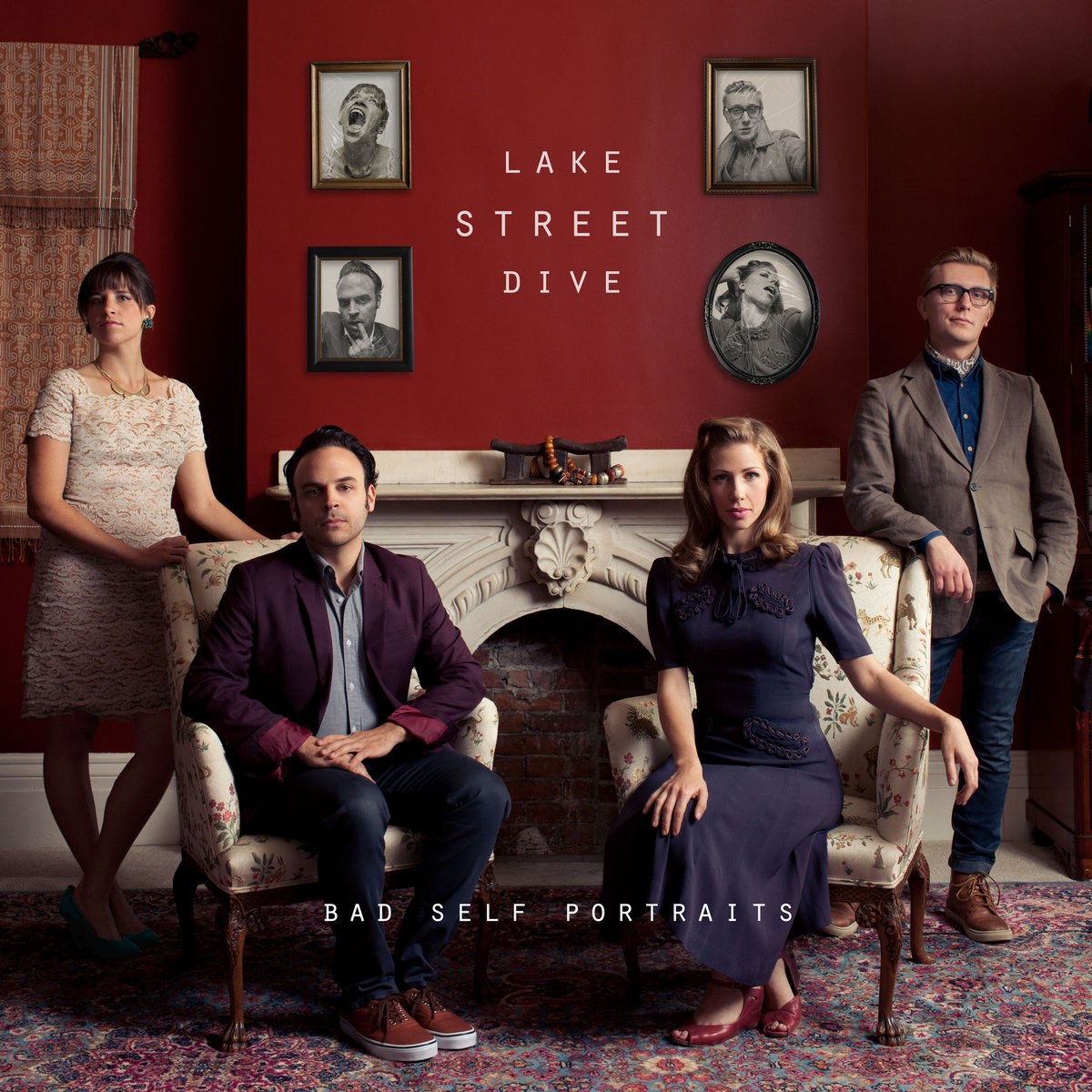After years of hard work, the Boston quartet Lake Street Dive, fronted by the incredible Rachael Price, has taken the music scene by storm. The acclaimed Bad Self Portraits hit the scene in February 2014. Not a week later the similarly named single was named iTunes Single of the Week. They are now playing the recently born Boston Calling music festival on Sunday, September 7th, alongside the incredible talent of Lorde, The National, The Replacements, and the likes. With the festival approaching, I had the chance to sit down and talk to Lake Street’s drummer Michael Calabrese about the band’s influences, their music, and their newest album.
To start, you guys worked for a long time before coming upon your fame. What keeps you going in such a tough industry when all forces seem to be against you?
At the heart of it we’re all good friends and have been so since the beginning. With any of the adversity we’ve faced along the way this simple fact has kept us going. Even when we didn’t have much of a direction stylistically, and had little ambition of ever turning our music into a career, we still would get together, book gigs, and enjoy each other’s company. If that hadn’t been so easy we may never have made it past our 2nd or 3rd year as a band.
But when your success did come, it seems — at least from the outside — to have come at a relatively quick pace. You went from YouTube sensations to having the iTunes single of the week in a pretty short period of time. It wasn’t overnight, but it must have seemed quick based on all of the work you guys had put it. What is that success like compared to the long, strenuous work?
The success is encouraging! The hard work hasn’t stopped. We’re still on the road a lot and although our conveniences have increased, so have our responsibilities and assets. At least now there is tangible fruits of our labor. That keeps us going as well.
Now to your music. You guys have two incredible albums of originals out: your eponymous freshman effort and the more recent Bad Self Portraits. Then in the midst of this you have Fun Machine: your release of five covers and one original. It is clearly the outlier. Can you give us some insight into how that came about and how the songs were chosen?
The head of our label came up with that idea, actually. We were freshly signed and low on new material and he suggested it as a way not only to keep interest alive between original albums but show fans and new possible markets what kind of influences we drew from. Some of the songs we’d been playing since the beginning, like “I Want You Back.” “Let Me Roll It” was chosen literally weeks before the recording session. Some covers just speak to you; others need to be chosen because of how well they work with our trumpet/bass instrumentation. A song with a lot of chords and limited melodic hooks or signature bass lines wouldn’t work as well.

Jumping to the songwriting process for a moment. I notice that on your website you have a tab that gives you a direct link to your lyrics. I can only name a handful of other people who have something like that, one being Bruce Springsteen. In his case, lyrics are extremely important to his music. Do lyrics take precedence in your songwriting process? Or is there something else that plays the most important role in your writing?
Whether or not the lyrics come first when any of us sit down to write a song, which varies each time, they are certainly important to us. We’re all students of people like Carol King and Paul Simon and the like, who wrote songs with undeniably memorable melodies but also meaningful lyrics. That’s what we go for when writing a song: bringing folks in with catchiness and then having words there waiting for them that hopefully resonate.
Now, everybody has his or her own opinion on who you sound like and who influences you guys. People list everything from Etta James to Amy Winehouse to a jazzier version of Adele. What is your own take on your sound? Which artists have actually had significant influence on you?
Our short answer in regard to our sound is pop/soul, so all those artists mentioned could certainly share a genre with us, but we don’t produce things like any of those artists, and their bands certainly differ in instrumentation, so it’s hard to say. It’s easy to say “jazz” when you see us because of the jazz school connection and the fact that there’s a trumpet and an upright bass, but that’s certainly not what we’re going for. Jazz is evidenced as part of our interactive stage show and it’s certainly there in occasional solos and harmonic choices we make, but in the end we’re not trying to do anything intentionally jazzy. It’s like having a cast iron skillet: everything you make in there is going to be tinged with the flavor of the pan and everything that came before it. The taste of the food, however, is up to the choice of ingredients, and those ingredients we focus on are danceable beats, hooky melodies, and hopefully some honest, resonating lyrics.

I have never had the pleasure of seeing you guys perform live, but from what I read, your live sound breathes new life into your music. What does the live setting allow you to do with your songs that the studio just can’t?
In a word, interaction. A lot of these songs we’ve been playing for a while, night after night, and to keep sane it’s important for us to be able to play with the songs in regard to what we do personally and as a band. It’s not that we’re bored or sick of anything we play. It’s just biology. We combat the potential for complacency and autopilot playing by dishing out a judicious bit of wild card choices that will hopefully keep your band mates and the audience’s interest piqued.
The studio is project-goal based music making and in the end becomes inherently “part” and calculation-oriented. However, we do like choosing zesty performances that contain that interactive quality as the basic tracks for songs on records. They inspire more ideas and keep the overdubs exciting.
Lastly, on a more personal note, I go to Boston College and right off of Commonwealth Avenue in Brighton there is a street called Lake Street. I believe that the band was named after a Minnesota street, but I realize that you guys all met in Boston and recorded your “I Want You Back” cover in Brighton. Any connection to that street?
Didn’t know that! No connection to that particular one but as it turns out, there’s a Lake Street in pretty much every city we’ve been to, even if they’re literally hundreds of miles from the nearest lake. There are plenty of words in the English language. Are the city planners getting lazy? Whatever the case may be, it’s cool that there’s a ubiquitous quality to the name. It’ll help us connect with everyone!

Check out the video that made Lake Street Dive famous here.
Get their music here.
Like them on Facebook.
Follow them on Twitter.
See Lake Street Dive at Boston Calling.
Boston College Student. Wearer of Extra Medium Pants. Lover of the Key of C#m. Collector of Wishing Well Change. Writer of Your Thoughts.
View all articles by Chris Dalla Riva



